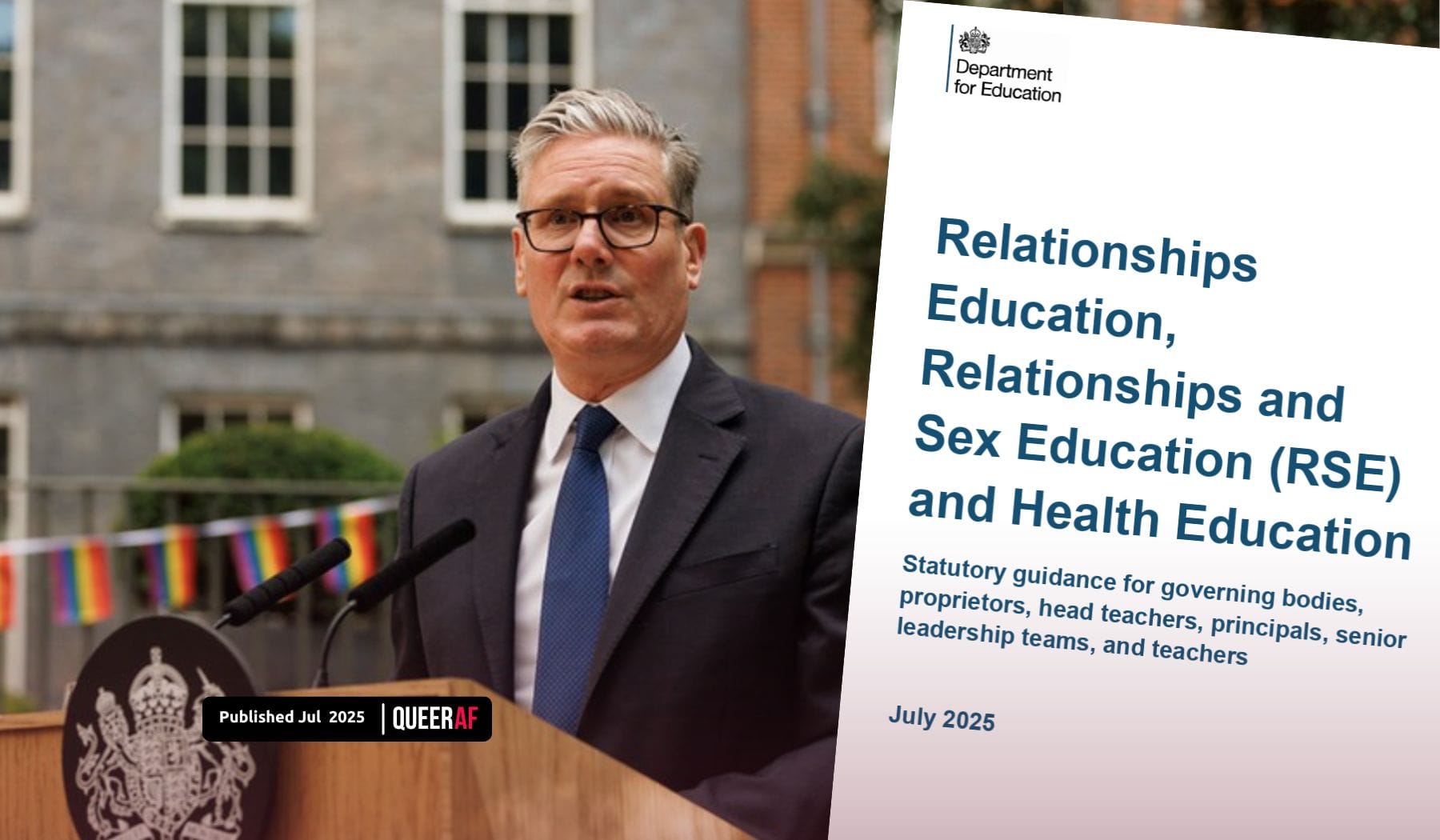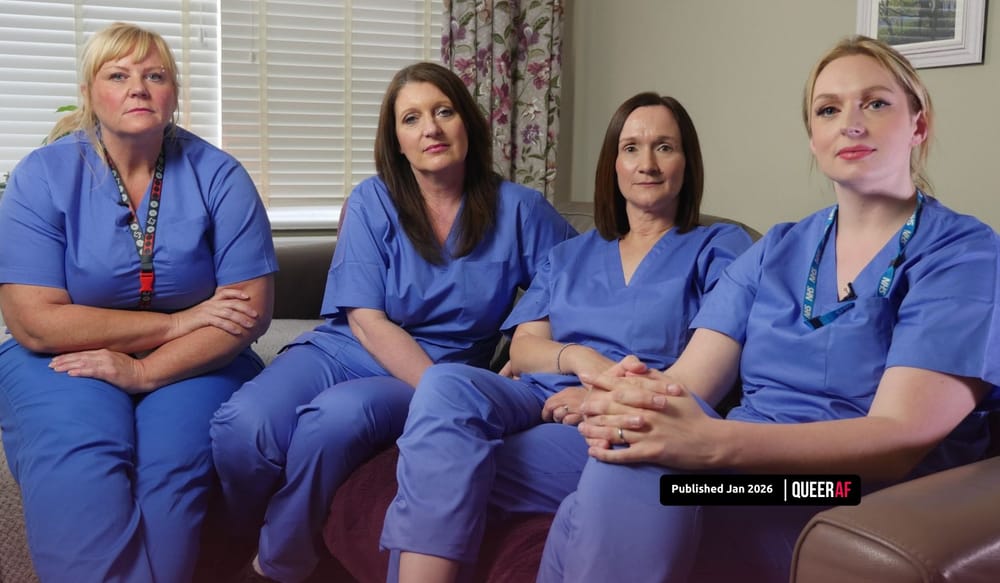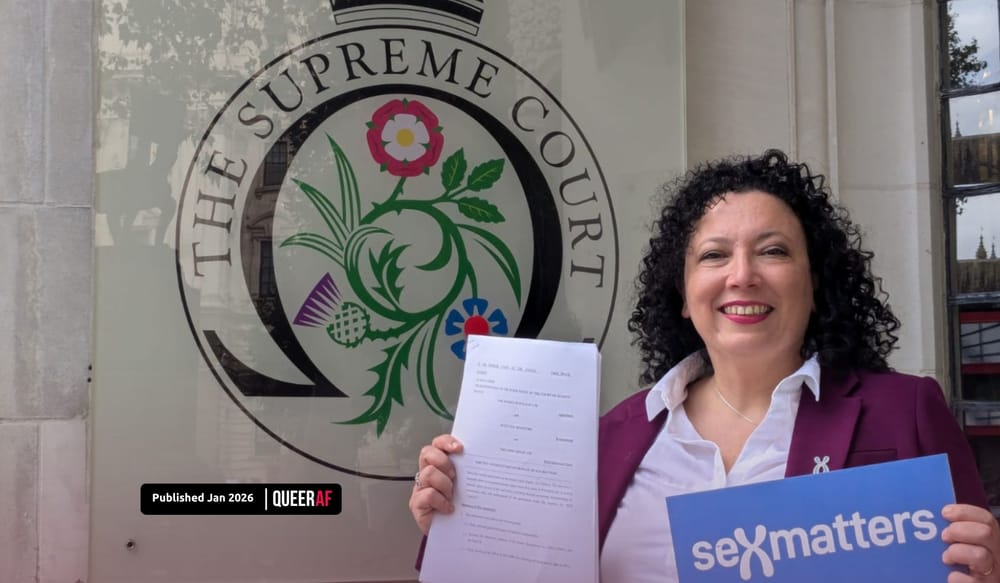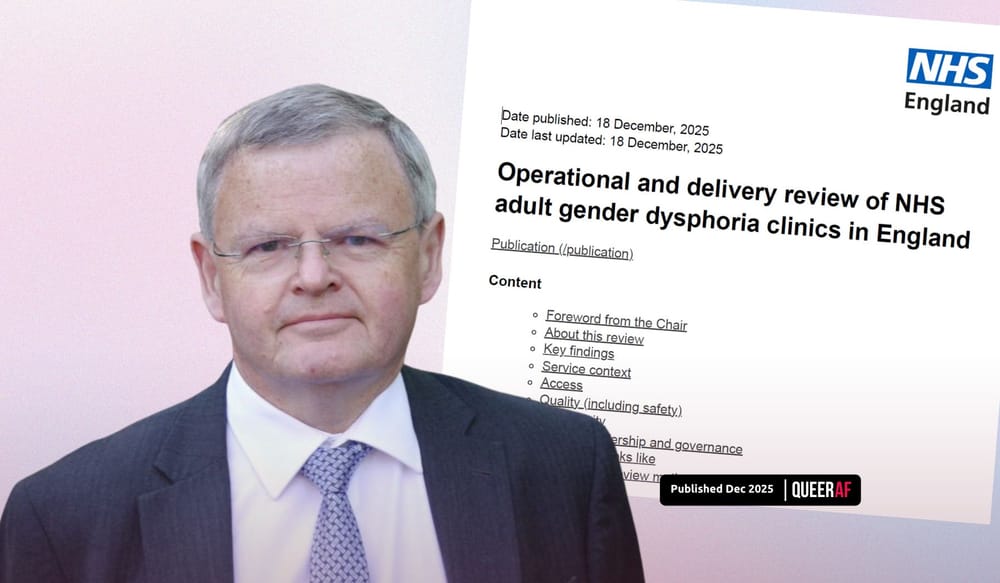TL;DR: New statutory Relationships and Sex Education guidance from the Labour government for England has been dubbed 'Section 28 2.0' because it restricts schools from using materials that "encourage pupils to question their gender", as well as putting pressure on teachers to avoid teaching about parts of Trans+ lives. It also makes it compulsory to teach children the laws about 'biological sex' and adopts a number of other gender-critical perspectives.
New relationship and sex education (RSE) guidance for England has taken a "trans exclusionary" approach and received widespread condemnation from the LGBTQIA+ community. Many are comparing the impact it will have to the damaging Section 28 law, which banned the "promotion" of gay identities until 2003.
The new statutory guidance comes into effect in September 2026, and though it sets out the curriculum for different age ranges, its LGBT section applies to all ages. In it, teachers are told they must teach about 'biological sex', but it puts a great deal of restriction on how schools can talk about the transgender community and Trans+ people’s experience.
It sets out how teachers must not use materials that "encourage" people to question their gender, and tells teachers that there is "significant debate" about trans people.
Gendered Intelligence, the UK's leading Trans+ youth charity, called the guidance "trans-exclusive" because it puts "pressure on schools to be less supportive of trans pupils", and in turn puts pressure on teachers to avoid teaching about trans lives, even though it doesn't ban it outright.
What does new relationships and sex education guidance for England say about Trans+ people?
It states that schools must avoid using material that "encourages pupils to question their gender", and adopts a number of other gender-critical perspectives into the curriculum.
Specifically, it tells schools not to teach that "everyone has a gender identity", and that they must avoid saying social transition is a "simple solution to feelings of distress or discomfort"
The guidance also sets out that schools should teach what laws apply to the gender-critical dog whistle 'biological sex' - a term which still doesn't have a specific legal definition despite it being the basis of this year’s ruling from the Supreme Court on the definition of a woman in the Equality Act 2010.
Meanwhile, all references to transgender people instead refer to "gender questioning" people, or the protected characteristic of "gender reassignment". The word ‘transgender’ is only used in the title of the LGBT section, and is not found anywhere else in the document.
Are there any positive takeaways from the new RSE guidance?
The curriculum has been welcomed by some for its guidance on teaching about misogyny, deep fakes, artificial intelligence, how pornography can negatively influence sexual attitudes, the harms of vaping, and consent.
But it is light on detail on many of these topics. QueerAF Audience Development Producer and sex educator Dee Whitnell says "the lack of training provided to teachers who deliver these lessons, who may not understand the world of AI, deepfakes, and Incel culture, may impact the delivery of these crucial topics."
The guidance also, for the first time, sets out that HIV and STI prevention tools go beyond just condoms, including references to PrEP. However, it does so while using out-of-date language about HIV transmission, and incorrectly refers to AIDs [sic] rather than AIDS (an abbreviation of Acquired Immuno-Deficiency Syndrome).
What has the response to the new RSE guidance been?
Neither gender-criticals nor queer voices are entirely impressed. Indeed, despite the guidance featuring a number of gender-critical dog whistles and perspectives, Sex Matters says it doesn't go far enough and is a "watered down" version of what the conservatives drafted, which would have outright banned talking about gender identity.
Meanwhile, Bayswater, a group of parents who have been shown to brag about abusing their trans children, said it "fails to address the serious safeguarding issues around teaching gender identity to children." Both groups have been widely quoted in media coverage of the news.
As for the LGBTQIA+ sector, there has been cautious optimism on the positives, but little direct condemnation from the UK's largest queer organisations so far. Stonewall, the UK's largest LGBTQ charity, was founded to fight for the repeal of Section 28, it told QueerAF:
“Every young person deserves to receive an education that reflects the modern world we live in and gives them knowledge and skills they need to live their lives now and to prepare them for the future. Ensuring young people see the diversity of themselves, their families and the wider community positively reflected in a curriculum that encourages equality and respect for others will help them develop and thrive.”
Can we split the positives out?
The head of research at queer health CIC The Love Tank Ben Weil told QueerAF that it's welcome to see improvements in the curriculum, but that the forthcoming changes are undermined by the lack of understanding of how intersectional sexual health is.
"Any work that seeks to make a meaningful difference to the lives of people affected by HIV and AIDS is only effective if it recognises wider social issues, contexts, and environments."
Meanwhile, in a sentiment that matches much of the community response to our reporting, they added that the guidance as it stands is "set to create new taboos and silences about transgender (or genderqueer) life, identity, and experience – a clear echo of Section 28.
"This silencing work – which is patently and cruelly transphobic – significantly undermines the value and applicability of the guidance’s proposed HIV education."
Analysis: The LGBTQIA+ sector was kept in the dark and caught off guard
Many in the LGBTQIA+ community feel a palpable anger, upset, and fear for a new generation of children, who will grow up being told about 'biological sex', but given filtered information about Trans+ lives, under the context that this community's lives are 'a debate'.
News of the guidance broke less than 24 hours after Keir Starmer held the annual No 10 Pride garden party. That meant, as many of you responded to our breaking coverage of it, the next post on your feed featured queer sector leaders reflecting on the space they'd held with the Prime Minister the day before, an event the 10 Downing Street accounts described as a “celebration”.
Very little in politics is not deliberate, especially when it comes to optics. Speaking to the leaders of Stonewall, Switchboard, LGBT London Friend and the LGBT Foundation, they all confirmed to QueerAF that they were not informed of the scope of the guidance or that it would be released on the same day all their accounts would be thanking the PM for hosting them. In a statement prompted by our questions, they added that the garden party was far from a celebration, and that "engagement isn’t the same as endorsement, presence isn’t the same as compliance".
All of this coming from a Labour government is particularly striking. It was Labour who repealed Thatcher's Section 28, an accolade they have long reminded us of in statements, rallies and speeches since 2003. We asked the Minister for Education how she felt about presiding over a change that many in the community view as akin to a new Section 28, a law that her party repealed and the David Cameron government apologised for. The Department for Education confirmed receipt but did not respond to our multiple requests for comment.
It's also worth reflecting on the legacy of Section 28. After it was repealed, we didn't enter into a glorious period of LGBTQIA+ inclusive education. Indeed, for many years teachers didn't know they could now talk about gay people, a phenomenon I’ve long described as a hangover from the legislation which meant its impact carried on long after it was repealed.
As for LGBT lives being included in the curriculum, the government didn't promise to consider making it compulsory for teachers to talk about queer identities until 2017, a change that was implemented over 15 years after the end of Section 28. Until now, the mention of LGBT identities in the RSE curriculum consisted of barely a paragraph. Now, it is set out and controlled in an extensive manner throughout the statutory guidance.
Whatever its puported intention, the impact of this new guidance is clear. It will limit what teachers can and can't say, out of fear they'll lose their jobs, just like Section 28 did. As a community and education system that barely even recovered from that impact last time, if the guidance stands in a year's time, a new generation of queer children is set to be denied critical information about their lives in schools.
Perhaps the only saving grace this time is that they can look to a global Trans+ community, resources from Trans+ organisations and the infinite resources online. There, they can still learn that we've always been here, and always will be, no matter how official channels try to control our lives.

We're in an acute period of attacks against our community:
A time where people who hate us are feeling more and more enabled to share, spread and communicate those attitudes.
In this period of uncertainty, you can trust QueerAF to be here - in your inbox every Saturday, to ensure you have all the latest information you need to navigate the changes, and to know how to fight back.
The kind of journalism we do week in week out, goes far beyond writing the 4000 words in this newsletter every week, or spending all week newsgathering. It requires us to build relationships with queer organisations, advocacy groups and with activists to ensure our ears are on the ground, and that we can connect the dots - so you're better equipped for the fight ahead.
QueerAF is a small team; for now, I'm the only one who works here full time and on top the news I do, I work with our network of contributors, mentees on our training schemes and freelance staff - to ensure we punch above our weight. We're both small and mighty.
But I'll level with you: we need your help. QueerAF's largest source of revenue is from people like you. That's by design. We've refused ads in this newsletter because it keeps us focused on what counts, not what clicks. It helps us stay grounded with what the community needs.
If you can, please join the hundreds of other QueerAF members who ensure our small but mighty newsletter, can take on the mainstream media and deliver you the information you need for the fight ahead.











